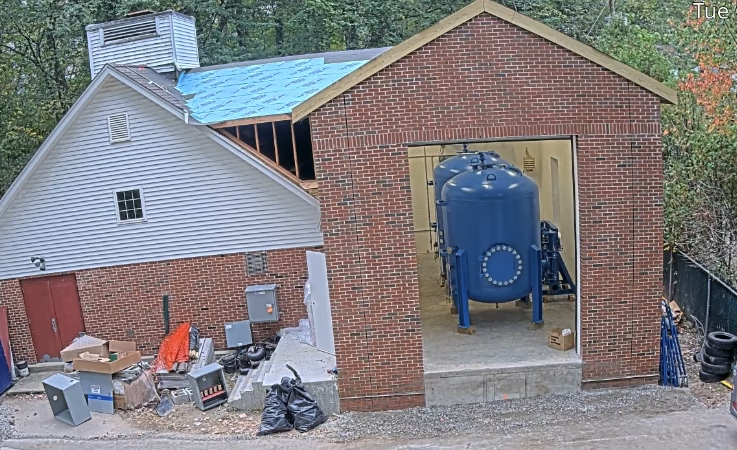Keep Funds Flowing: SRFs support PFAS and lead infrastructure improvements in New Jersey
October 21, 2025

AWWA Articles
Keep Funds Flowing: SRFs support PFAS and lead infrastructure improvements in New Jersey
When Ridgewood Water in New Jersey discovered PFAS contamination in all 52 of its groundwater wells, the utility faced a monumental challenge: how to fund a complete overhaul of its treatment system to meet new state and federal regulations.
“This is probably the single biggest investment this utility has ever made in its 100-year history,” said Richard Calbi, director at Ridgewood Water, which serves 61,000 people (or 21,000 accounts). “We’re talking about nearly $100 million to reimagine and reconstruct our entire system in four different towns — consolidating 31 treatment plants into 12, installing massive GAC [granulated activated carbon] vessels, and laying thousands of feet of new raw water main.”

Despite Ridgewood’s strong AAA bond rating, Calbi and his team opted for financing through the State Revolving Fund (SRF) because of the blend of principal forgiveness and low-to-zero interest rates. “We’ve already been committed $7 to $9 million in principal forgiveness,” Calbi said. “That’s huge. And when you factor in the interest savings, we’re looking at about 20% in total savings to our ratepayers.”
SRFs are state-administered loan programs, initially supplied by federal and state funds, that provide financing for water infrastructure projects. As local governments repay their loans, the money is reinvested to fund new projects, creating a continuous source of funding for water quality initiatives like those supported by the Clean Water and Drinking Water SRFs. These programs are facing cuts in the U.S. Congress, and American Water Works Association is elevating stories of impact to demonstrate their need.
In Ridgewood, once leaders secured funding for the PFAS project, they looked to other infrastructure improvements like lead service line replacement. They have applied for $17.9 million in SRF funding and hope to secure up to 75% of the loan at 0% interest. In total, Ridgewood will replace about 3,000 service lines and expects to complete the project in phases ahead of New Jersey’s 2031 deadline.
Calbi said it’s important to make the case directly to state lawmakers about why these types of financial support programs matter. “We’ve been preaching to them [in New Jersey] for three or four years now,” he said. “At the end of the day, when the bonds come through, we’ve got to start paying them back. And who’s going to pay it? The ratepayer. Who is the ratepayer going to call and complain to? Their elected official. And who better than the elected official to find a way to leverage any avenue available to save the utility?”
That message has resonated. Ridgewood Water in the last year received a $1 million grant from the state — support Calbi attributes to persistent, transparent communication with legislators. “I remember catching one assemblywoman at the top of an escalator,” he said. “I told her, ‘Rate shock is coming like you’ve never seen before, and when it does, your constituents are going to call you.’”
Thanks to SRF support, Ridgewood’s PFAS treatment project is more than halfway complete, with three of the 12 new plants already online. The utility expects 90% of its water to be PFAS-free by the end of 2026, with full compliance by early 2027.
Has your utility benefited from federal infrastructure funding? If AWWA can feature your project in its advocacy efforts, please fill out this form.
Advertisement